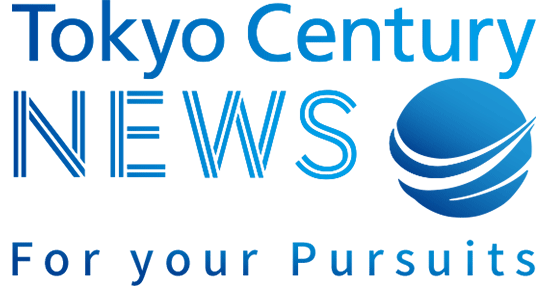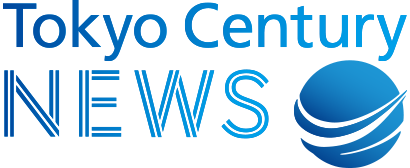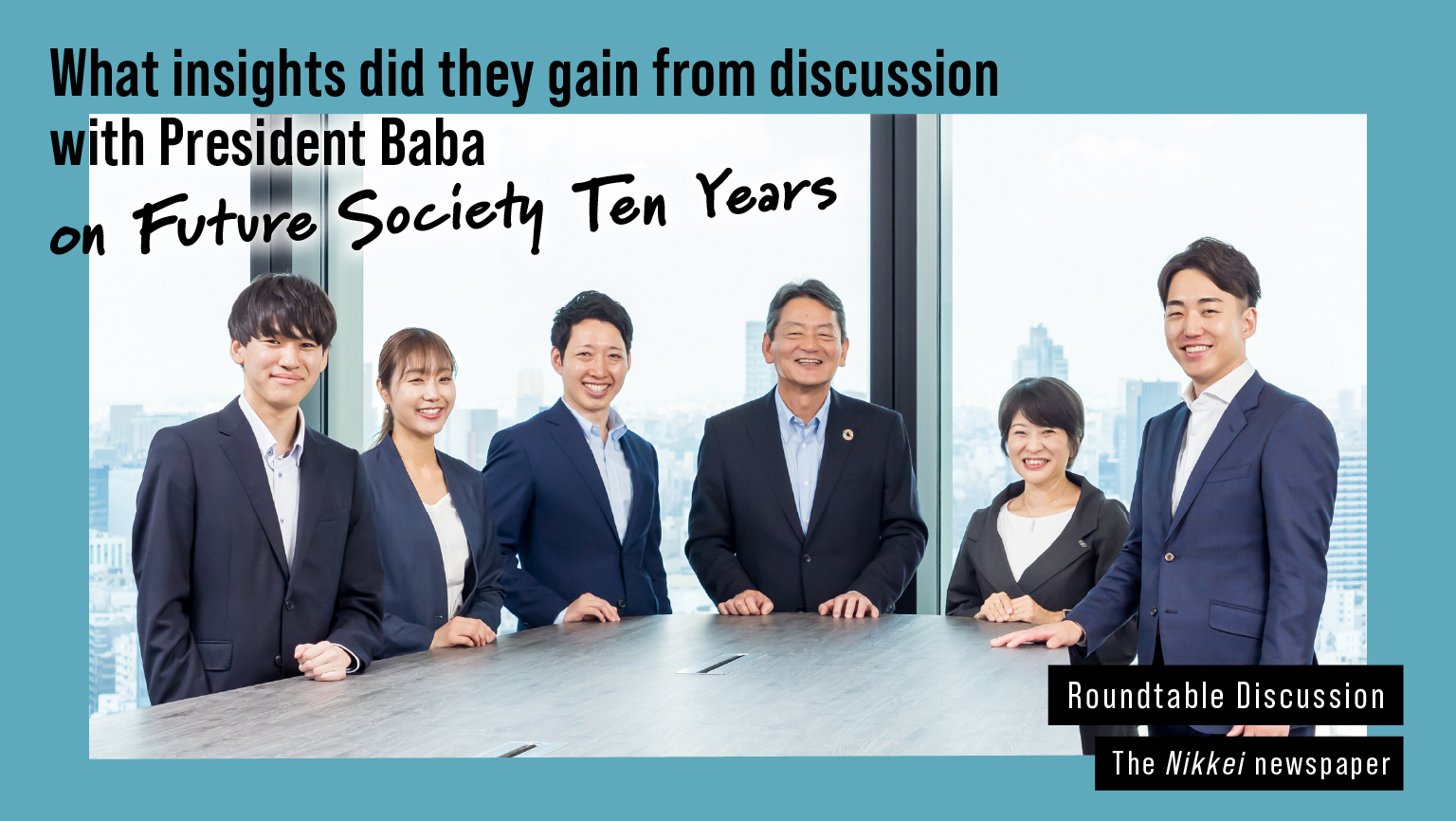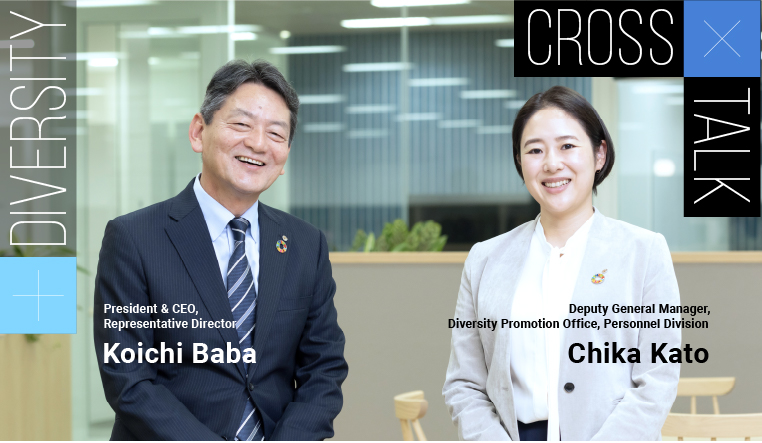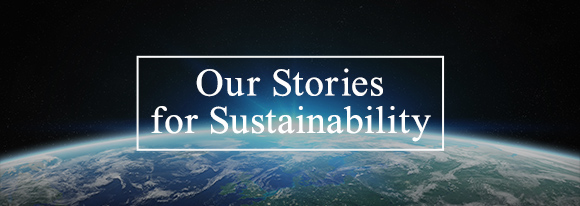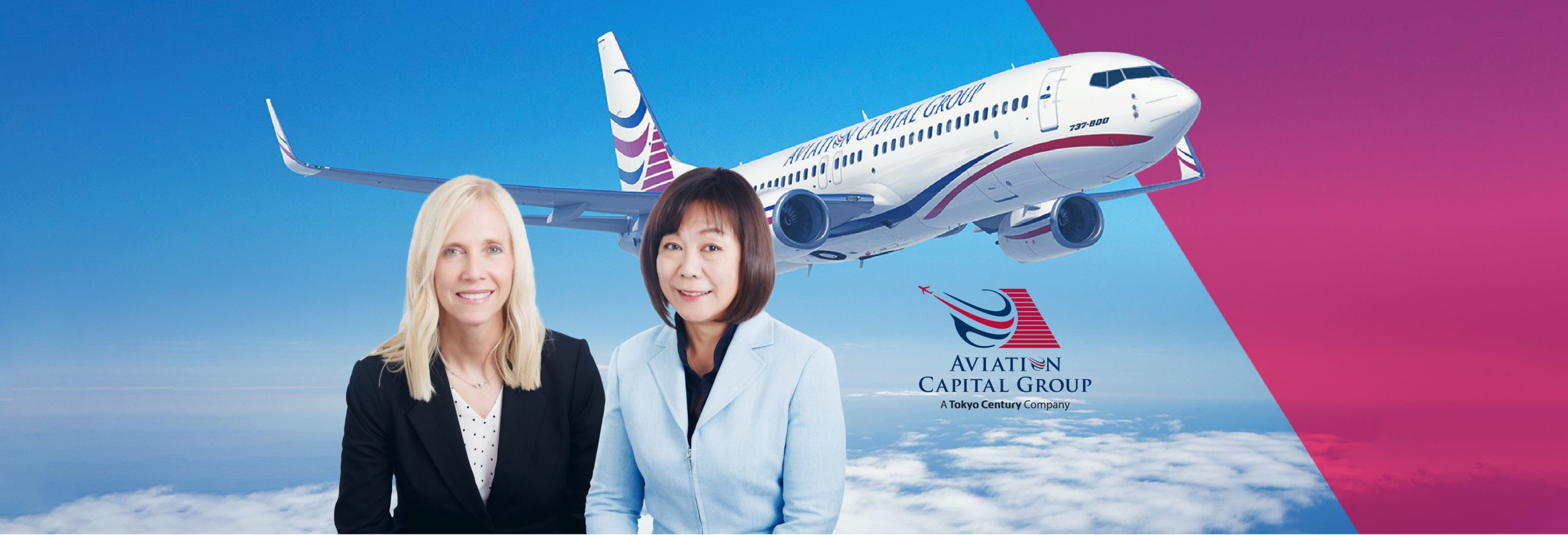
A Conversation about Aviation Capital Group’s Diversity, Equity, and Inclusion Efforts
Apr 27, 2022
Founded in 1989, Aviation Capital Group (ACG), a part of the Tokyo Century Corporation (TC), is a leading aircraft asset management firm and is especially well known for its leasing of narrow-body aircraft. Today, it services roughly 95 airlines in 45 countries.
It is also an industry pioneer in diversity, equity, and inclusion (DEI) initiatives. Elizabeth Stevens, ACG’s Senior Vice President of Human Resources, IT, and Communications, and Mahoko Hara, Executive Chairperson of ACG and Senior Managing Executive Officer of TC, discuss how ACG promotes DEI, and why it’s important.
DEI at ACG
――How would you describe ACG’s DEI environment?
Stevens: We’re a very diverse workforce. We employ individuals who work in multiple countries and who speak multiple languages. Our environment is already very accepting, open, and engaging. When we’re solving problems, we want people to come to the table with different perspectives, opinions, and experiences. We also want to give women the same opportunities that men have. Historically, our sector has been dominated by men, so it’s going to take time, but it’s a conscious effort on our part.
Hara: We’re located in California, a particularly diverse place where people from different countries come and work, who have different ethnic backgrounds and sexualities. So, we already have a good foundation of people who honor DEI.
――How would you compare what you’re doing with other companies across the United States?
Stevens: This topic, even seven years ago, was not nearly as prevalent as it is today. We’ve established different groups and committees in the company, and we are empowering them to solve issues that matter to our employees. At other companies, it’s the management saying, “This is our initiative, and this is the group we’re going to go support.” At ACG, we’ve put committees together made up of people with different genders and different backgrounds, and they have come together to address and implement initiatives based on a principle of mutual respect.
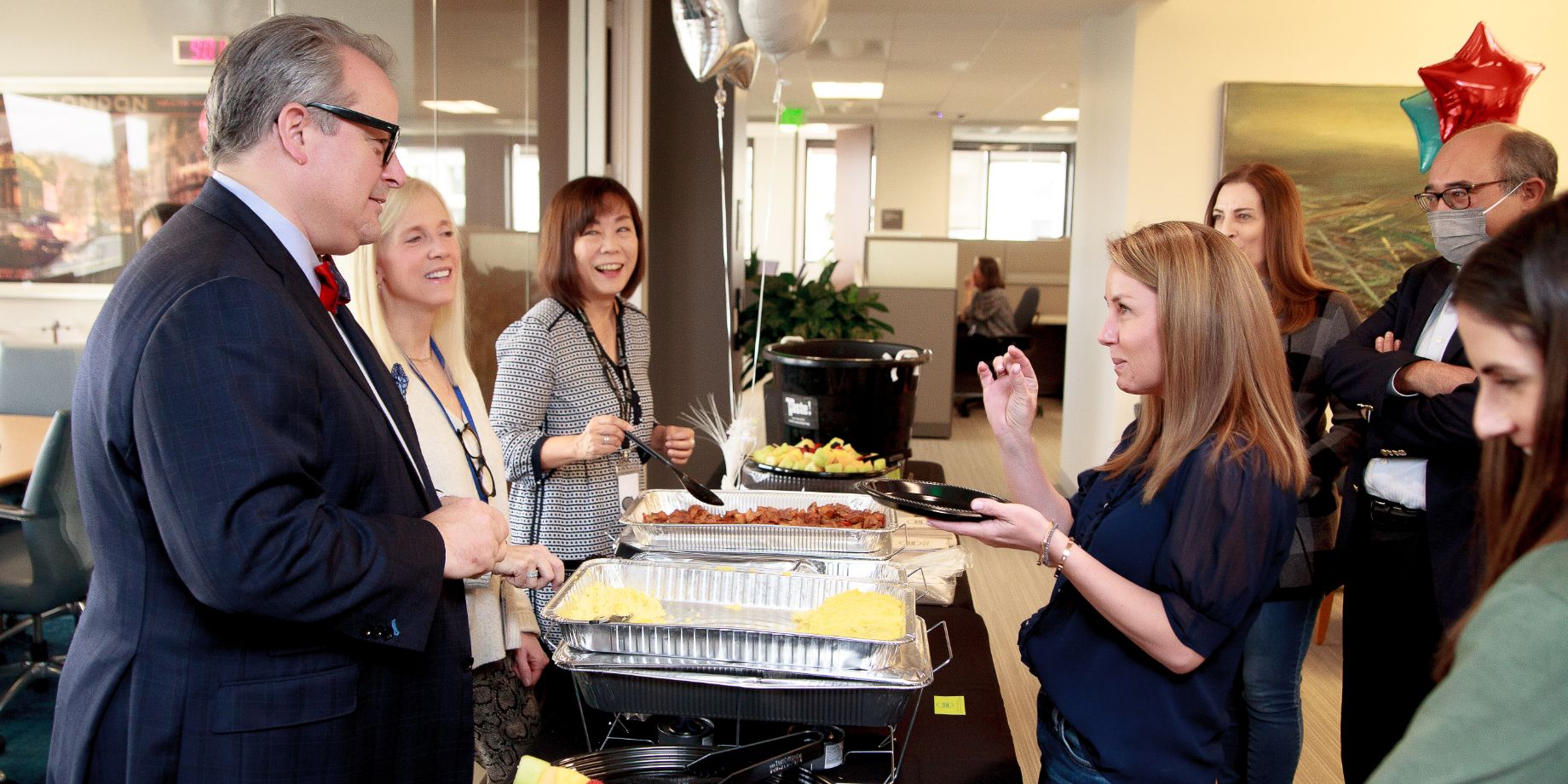
Employee Appreciation Day—Senior Management serves employees with breakfast.
――What are some of ACG’s DEI initiatives?
Stevens: Last year, we implemented a volunteer time-off policy, which means that all of our employees are given the opportunity to take up to eight paid hours off to go and support any qualified non-profit charity of their choice. We also have a charitable donation matching program, where ACG ─ with the support of TC ─ matches any charitable contribution that an employee has made to a charity of their choice.
We also have a tuition reimbursement program. Because we’re in such a niche industry, there are only a few universities around the world that cater to what we do, so we encourage people to study, and we’re willing to financially reimburse them for broadening their academic background.
In addition, we conduct mandatory harassment prevention training as part of our new hiring orientation program. We’re very into developing and training people and providing tools for our employees to be successful, but also confident in their day-to-day job. Confidence is important, because when you’re in a meeting, you’re more comfortable sharing your opinion and different viewpoints.
When appointing people to various committees, the senior leadership team provides Human Resources the names of appropriate candidates, and HR tries to include men and women of different backgrounds, ages, and departments. That’s what has allowed our committees to accomplish so much. Now, we’re forming subgroups to handle smaller tasks that contribute to the larger committee goals. Also, people are volunteering for committees, in the event that someone resigns from one, so we have not only talent, but interest.

――What are some of the challenges that you’ve encountered during these initiatives?
Stevens: We are mindful that, if someone reaches out and asks what we are doing to honor a certain nationality, we mustn’t recognize one group and then not and that every person makes a difference here.
Hara: We have employees working around the globe in different countries, and they are very much a part of the ACG community, as much as we are in California. So, we have to also be inclusive for those people. When we decide which NPO to donate to, or which social activities, we’d like to hear people’s opinions company-wide and make sure that everyone has a voice.
HR is increasingly having a positive influence on the direction of business.
――Elizabeth, what made you decide to take the role with ACG? And what was it that drew you to the company?
Stevens: One of the things that stood out to me from the very first group interview I had was the caliber of people at ACG. They are highly professional, personable, and committed. I was really interested in joining an organization where people didn’t need to be told what to do, they just knew what they needed to do and when they needed to do it. There is a high degree of self-motivation at ACG. I also wanted to be part of a senior leadership team where I could make an impact, improve the lives of others, and also have a voice that would be heard.

――What do you find meaningful about being a professional in the HR field?
Stevens: I think effective HR professionals are also business professionals. They understand the business’s issues and its problems so they can help provide solutions and partner with others, whether it’s the trading team, the marketing team, or the finance team. You need to get in the trenches with the managers and the employees, and work with them to solve problems. But what’s really amazing about our workforce is that people just come together to embrace change and different perspectives.
I also consider HR to be like a support group ─ it’s not about what HR wants to do, it’s about what our employees want to do, then HR follows their lead. HR professionals are, without a doubt, increasingly having a positive influence on the direction of business.
――Why is DEI important to ACG? And how have you seen the firm’s corporate culture change since you implemented DEI policies?
Stevens: One of the most amazing things is that Mahoko, our executive chair, is a woman, and that sets a really nice tone. I’ve had people say that they’ve never seen that before, and that they think it’s good a woman is in that role. I’m also on the senior leadership team, which has historically been mostly made up of men. Now, there’s a groundswell in terms of other women in the organization who want to advance in their career, have a voice, and make an impact.
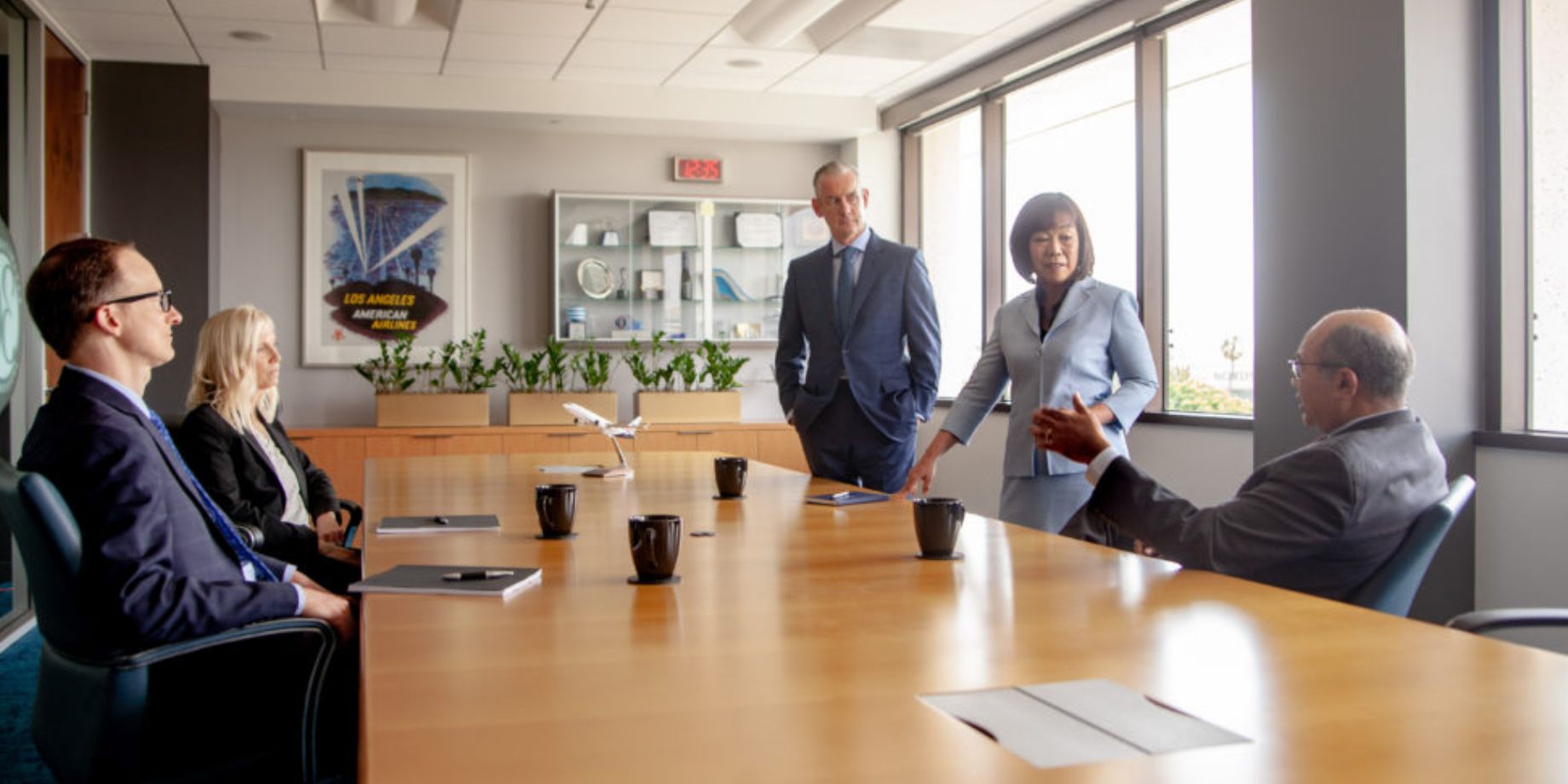
ACG's diverse senior management
Hara: Because ACG’s business is global, we deal with people from many different backgrounds. As such, we naturally need the opinions of people with different viewpoints. And that’s not only cultural backgrounds or ethnicity, it’s also employment backgrounds. Our business is not only made up of finance experts, we also have engineers, technical people, and other very specialized professionals within the company, which means that they also provide different viewpoints. So, we need to be inclusive of people that have had different types of careers.
Changing Trends Due to COVID-19 in US
――In response to the Covid-19 pandemic, what changes have you seen taking place in terms of how people work and how new employees are hired?
Stevens: Everything is still changing. When the pandemic began, two thirds of our workforce wasn’t set up to work from home. We quickly outfitted people with laptops, monitors, keyboards, and so forth. That was pretty quick and easy. Then we hit a point where people loved being at home, no one wanted to come back, and they couldn’t come back anyway.
In the first year of the pandemic, we hired about 25 people, which is a lot, considering we’ve got about 125 employees. That means one fifth of our people are new. And my concern was, how do we engage with these people? How do these people get to learn about our culture? So, we had monthly meetings, introduced new hires, and we’d also do something fun, like play a game or do online trivia. It was something that people could look forward to.
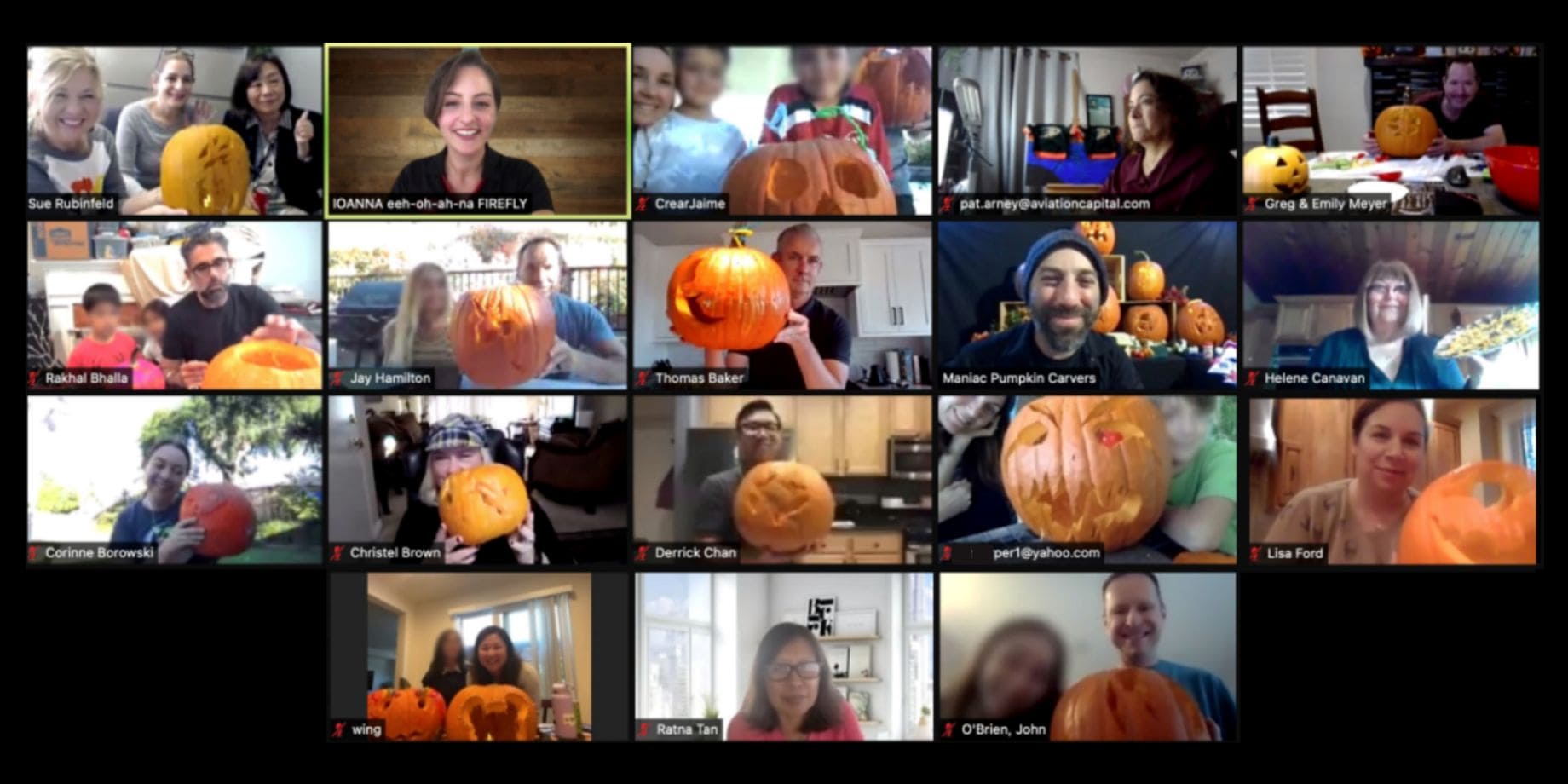
At a Halloween pumpkin carving event. Organized various events on Zoom to communicate between employees during pandemic.
But one of the things that we’re starting to see more of when we’re interviewing candidates is that people that were working at home, fully remotely, have become lonely. They don’t want to work in a company where they are at home five days a week because they’ve lost connections. It’s an evolving situation.
――What do you think is the cause of the Great Resignation in the US, and how is ACG responding to it?
Stevens: Historically, most companies had their people come in five days a week, then Covid-19 hit, and people were scared and uncertain how they were going to blend work and their personal lives. They had to deal with their kids being at home, schoolwork, their pets, and many other things. But once they figured it out, they started liking it. Plus, there are candidates all over the spectrum in terms of what they want their work life to be. Some want to be fully remote because they want to live in another state, where the cost of living is lower, or they’ve got family or friends there.
But now, if you read some articles, people who left and thought that the grass was greener on the other side, after a few months have said, “Oh, it’s not the shade of green I thought it was going to be,” and they want to go back to the job and employer they left. I think what people want is work─life balance, and that means different things to different people. They might want to be able to spend more time with their older parents, they might want to pick up their kids from school and help them with their homework, or they might have a hobby or sport they enjoy.
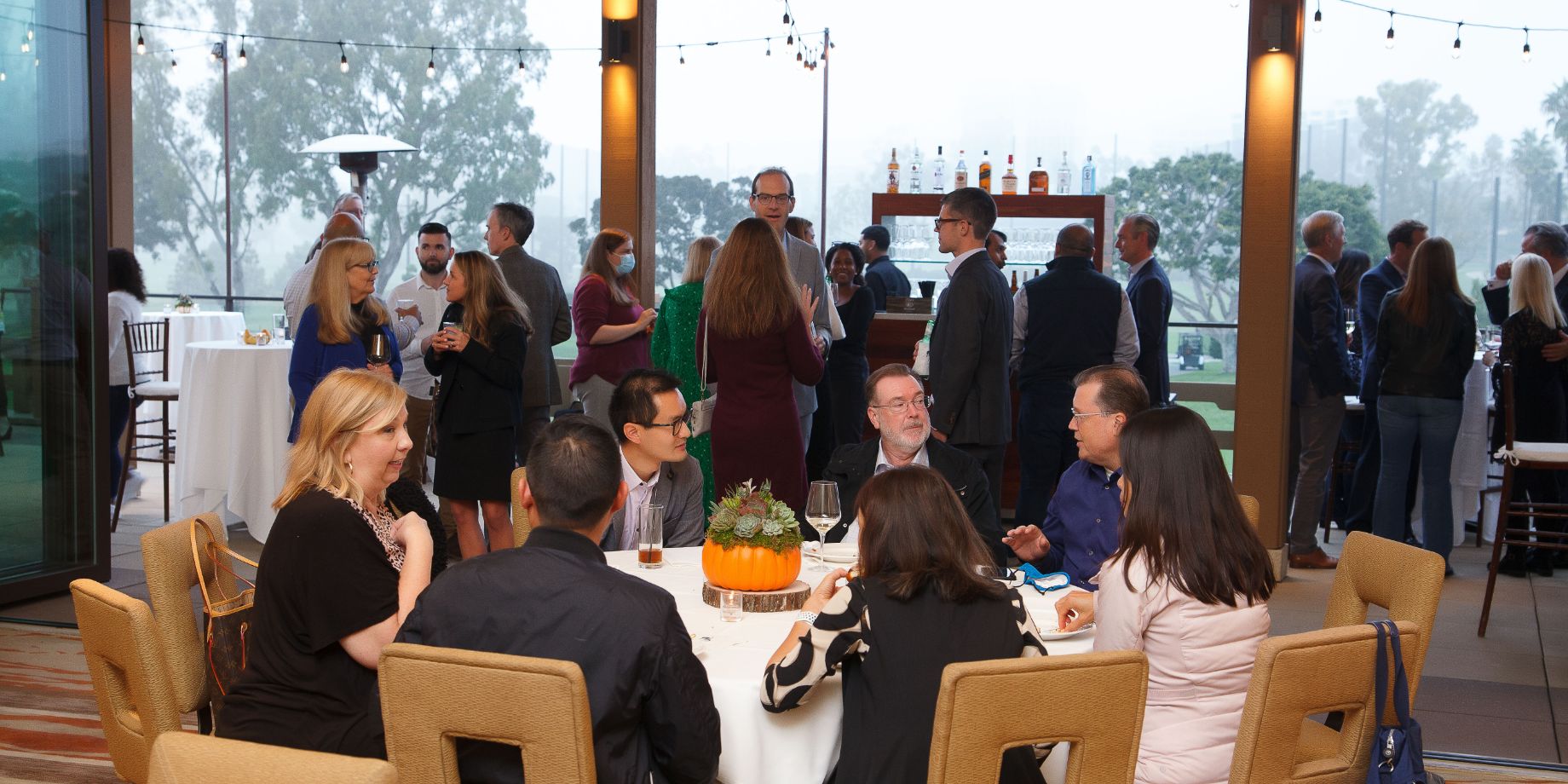
Welcome Back event at ACG when started working in the office after working from home for about two years.
Our plan at ACG is to go with a hybrid work model in the hope that’s going to meet people where they need to be met, and will provide them with some freedom, flexibility, and a good work─life balance. At the same time, we’ll give them the connectivity that they need, and that we need as a workforce and a business. We believe that will accommodate the majority of our people. We believe we’re stronger when we’re together.
――Mahoko, could you tell us a specific example of DEI that you’ve heard about or directly observed that effectively puts equality into practice in US society?
Hara: The US is already a melting pot, and California prides itself on that. We have strict laws prohibiting discrimination based on age, ethnicity, and gender. In addition to the DEI initiatives we mentioned, we have members of the LGBTQ+ community within ACG as well. Just as with ethnicity, it really doesn’t matter. We work together seamlessly; there are absolutely no barriers to opportunities for career advancement. We haven’t really seen a lot of that in Japan yet, although we are trying to take down that barrier.
HR Is Vital in Shaping Corporate Strategy

――What are some differences or positive factors about ACG’s HR system? And which of them do you plan to implement at TC?
Hara: The way ACG hires people is very different from TC, because hiring is job specific. We hire people based on a specific job description, whereas at TC ─ or in Japan, in general ─ we still predominantly hire people out of college, and they get posted to a position that the company chooses. As TC’s business becomes more complex, it becomes more diverse. I think it’s very important for us to move more towards that job-specific hiring practice. And not just students out of university, but people in their mid-careers, which we’re increasingly doing.
HR at ACG is really integrated into the business. And Elizabeth is a member of the senior leadership team, which is a decision-making body that makes important business decisions, and considers HR’s viewpoint to be vital in shaping corporate strategy. That’s something that I really appreciate because, in Japan, HR has a little more distance from the running of the business.
Our HR department also has an open door policy. People can come into our office to raise concerns, or even just chat about things or share developments. This means we know what's happening in the company, and helps us with hiring the right people.
――What areas do you plan to focus on at ACG and TC, and what are your hopes for the near future?
Stevens: We are going to continue to build on our culture across our different global locations, such as Singapore and Ireland. We will continue to host different events to help people feel connected, and we’re going to continue to support our committees and DEI initiatives. I think one of the things that’s healthy about ACG is that the management team, at all levels, doesn’t profess to have all the answers. Getting honest feedback helps us be better, it helps us stay real, and it helps us know what our employees need.
Hara: I think we still need a lot more female executives at higher ranks within the organization. This is an industry-wide matter, as the aviation business is still very much male dominated. With Elizabeth at the senior management level, and other female officers already at our company, we are helping, but there’s a lot more that we can do. I think we need to do everything that we can to elevate women so that they can really be appreciated for their capabilities and merits.

Aviation Capital Group LLC
Aviation Capital Group LLC is a leading US-based full-service aircraft asset manager, founded in 1989. The company provides a wide range of aircraft-related services, including operating lease and asset management, and known for its solid operations, primarily through leases of narrow body aircraft to approximately 95 airlines in approximately 45 countries worldwide, and is renowned for its high level of competitiveness and expertise.
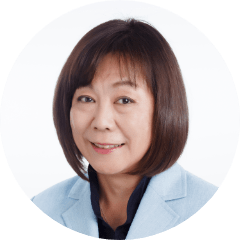
Mahoko Hara
Executive Chair
Ms. Hara is the Executive Chairperson of ACG and is also a Senior Managing Executive Officer of Tokyo Century Corporation. Ms. Hara assumed the Executive Chair role in December 2019 following TC’s acquisition of ACG.
Ms. Hara joined TC in 2011 and has been responsible for strategic planning and cross-border M&A for TC’s specialty finance businesses with particular focus on the aviation sector.
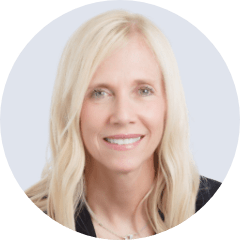
Elizabeth Stevens
Senior Vice President Human Resources, IT & Communications
Ms. Stevens is Senior Vice President Human Resources, IT & Communications. Prior to joining ACG in 2020, Ms. Stevens served as the Vice President of Human Resources for Chaparral Management Services Corp/Westside Building Material. In addition to her Human Resources background, she has held several key positions in operations, sales, and customer service, and was a business owner in the medical field.
*The contents of the article and the position titles are as of the date posted.
RECOMMEND ARTICLES
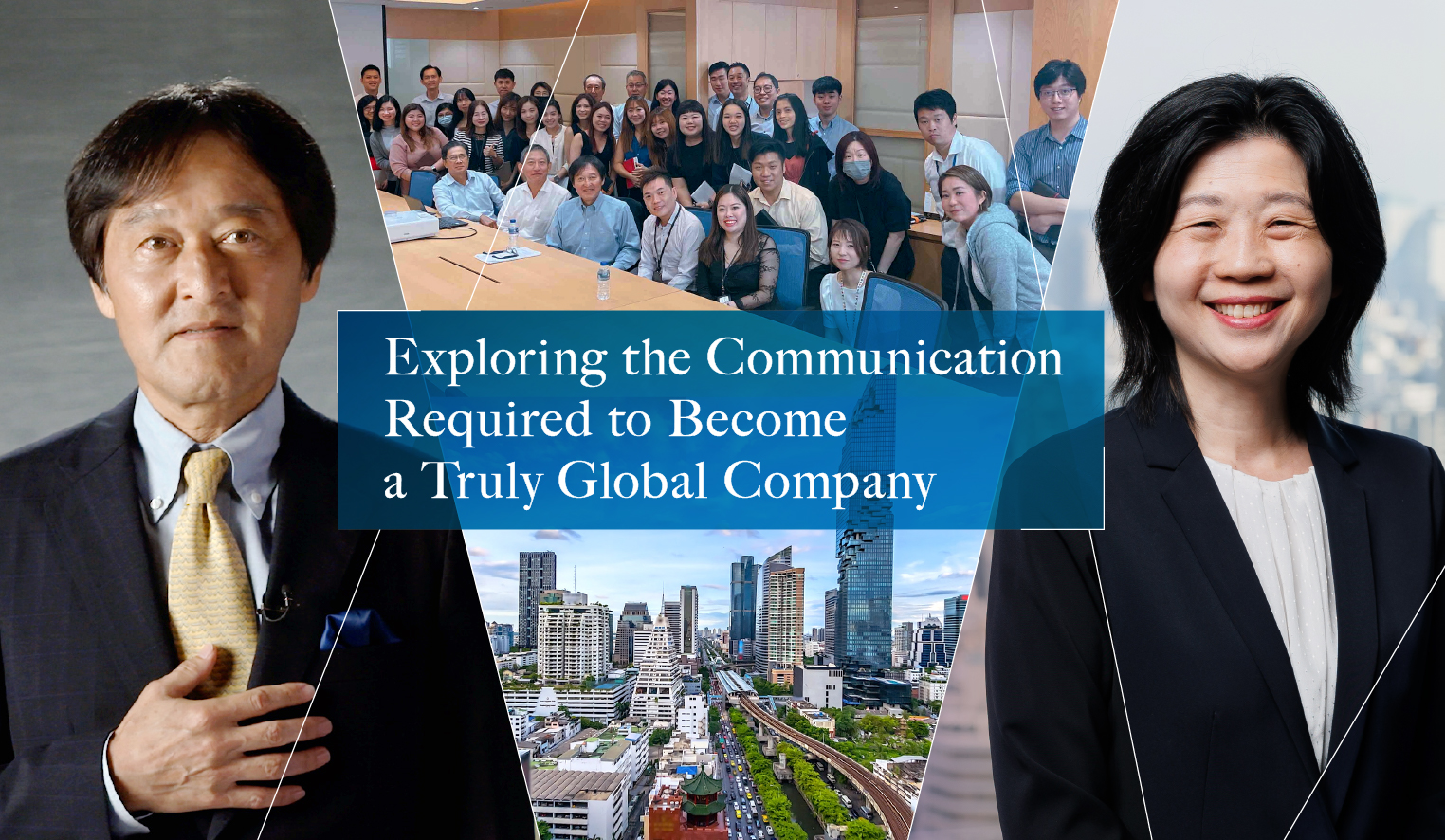
—Exploring the Communication Required to Become a Truly Global Company
Aug 21, 2024
Communication has be…
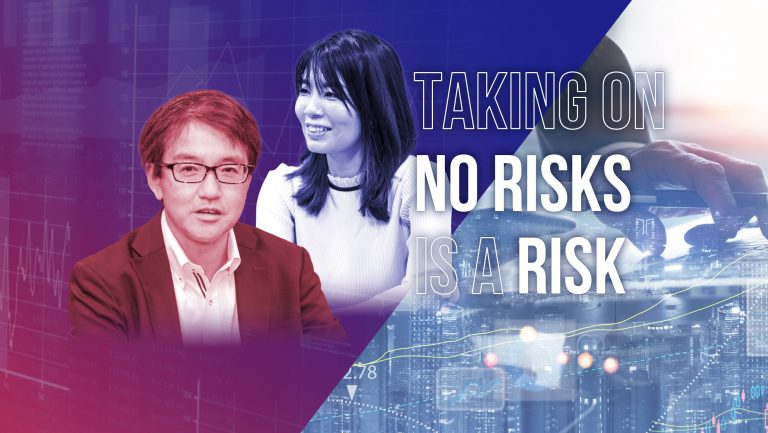
Dec 20, 2023
New risk factors hav…
